| Ambassador of the United States to the People's Republic of China 美利坚合众国驻华大使 | |
|---|---|
 Seal of the United States Department of State | |
| Residence | Beijing |
| Nominator | The President of the United States |
| Appointer | The President with Senate advice and consent |
| Formation | February 27, 1979 |
| First holder | Leonard Woodcock |
| Website | china |
The United States ambassador to China is the chief United States diplomat to the People's Republic of China. The United States has sent diplomatic representatives to China since 1844, when Caleb Cushing, as commissioner, negotiated the Treaty of Wanghia. Commissioners represented the United States in China from 1844 to 1857. Until 1898, China did not have a system in place for the Emperor to accept the Letters of Credence of foreign representatives. From 1858 to 1935, the United States representative in China was formally Envoy Extraordinary and Minister Plenipotentiary to China. The American legation in Nanjing was upgraded to an embassy in 1935 and the Envoy was promoted to Ambassador Extraordinary and Plenipotentiary.
During the republican era, the United States recognized the Beiyang Government in Beijing from 1912 to 1928 and the Nationalist Government in Nanjing (and Chongqing from 1937 to 1945) from 1928 onwards. After the Communist Party established the People's Republic of China in mainland China in 1949 and the Kuomintang moved the Republic of China government from Nanjing to Taipei of Taiwan, the United States continued to recognize the Republic of China as the legitimate Chinese government and maintained its embassy in Taiwan. However, in 1973, the United States established a Liaison Office in Beijing to represent its interests in mainland China. In 1976, the Chief of the Liaison Office was promoted to the rank of ambassador. In December 1978, the United States severed official relations with the Republic of China and in January 1979, established formal relations with the People's Republic of China. The United States Liaison Office in Beijing was upgraded to an embassy on March 1, 1979. The American Institute in Taiwan was established in 1979 to serve as the unofficial United States representative to Taiwan, with the director of its Taipei Office taking the role of a de facto ambassador.
YouTube Encyclopedic
-
1/4Views:4 3821 2212 5166 392
-
Gary Locke, U.S. Ambassador to China: Trends and Challenges of China's Economic and Technology Rise
-
U.S.-China Economic Relations in the Next Decade Part 3: Keynotes
-
China and the World: A Conversation with Three Chinese Ambassadors
-
US-China Relations at 40: Reflections on the 40th Anniversary of Normalization
Transcription
Chronology
Representation is as follows (years refer to dates of actual service):
Qing Empire:
- Commissioner to the Great Qing: 1843 to 1857
- Envoy Extraordinary and Minister Plenipotentiary: 1858 to 1912
Republic of China:
- Envoy Extraordinary and Minister Plenipotentiary to the Republic of China: 1913 to 1935
- Ambassador Extraordinary and Plenipotentiary to the Republic of China: 1935 to 1979
- Director of the Taipei Office of the American Institute in Taiwan: 1979 to present
People's Republic of China:
- Chief of the United States Liaison Office in the People's Republic of China: 1973 to 1979
- Ambassador Extraordinary and Plenipotentiary to the People's Republic of China: since 1979
List of envoys to the Qing Empire
| Name | Portrait | Home state | Presented credentials | Terminated |
|---|---|---|---|---|
| Caleb Cushing | 
|
Massachusetts | June 12, 1844 | August 27, 1844 |
| Alexander Hill Everett | 
|
Massachusetts | October 26, 1846 | June 28, 1847 |
| John W. Davis | 
|
Indiana | October 6, 1848 | May 25, 1850 |
| Humphrey Marshall | 
|
Kentucky | July 4, 1853 | January 27, 1854 |
| Robert Milligan McLane | 
|
Maryland | November 3, 1854 | December 12, 1854 |
| Peter Parker | 
|
Massachusetts | July 15, 1856 | August 25, 1857 |
| William B. Reed | 
|
Pennsylvania | May 3, 1858 | November 11, 1858 |
| John Elliott Ward | 
|
Georgia | August 10, 1859 | December 15, 1860 |
| Anson Burlingame | 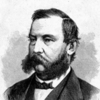
|
Massachusetts | August 20, 1862 | November 21, 1867 |
| John Ross Browne | 
|
California | October 28, 1868 | July 5, 1869 |
| Frederick Low | 
|
California | April 27, 1870 | July 24, 1873 |
| Benjamin Avery | 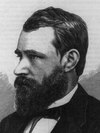
|
California | November 29, 1874 | November 8, 1875 |
| George Seward | 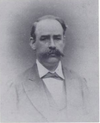
|
California | April 24, 1876 | August 16, 1880 |
| James Burrill Angell | 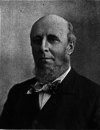
|
Michigan | August 16, 1880 | October 4, 1881 |
| John Russell Young | 
|
New York | August 17, 1882 | April 7, 1885 |
| Charles Harvey Denby | 
|
Indiana | October 1, 1885 | July 8, 1898 |
| Edwin H. Conger | 
|
Iowa | July 8, 1898 | April 4, 1905 |
| William Woodville Rockhill | 
|
District of Columbia | June 17, 1905 | June 1, 1909 |
| William J. Calhoun | 
|
Illinois | April 21, 1910 | February 26, 1913[note 1] |
List of envoys to the Republic of China
| Name | Portrait | Home state | Presented credentials | Terminated |
|---|---|---|---|---|
| William J. Calhoun | 
|
Illinois | April 21, 1910 | February 26, 1913[note 2] |
| Paul Samuel Reinsch | 
|
Wisconsin | November 15, 1913 | September 15, 1919 |
| Charles Richard Crane | 
|
Illinois | June 12, 1920 | July 2, 1921 |
| Jacob Gould Schurman | 
|
New York | September 12, 1921 | April 15, 1925 |
| John Van Antwerp MacMurray | 
|
New Jersey | July 15, 1925 | November 22, 1929[note 3] |
| Nelson T. Johnson | 
|
Oklahoma | February 1, 1930 | September 17, 1935 |
| George Marshall | 
|
Virginia | December 20, 1945 | January 1947 |
List of ambassadors to the Republic of China
| Name | Portrait | Birthplace | Presented credentials | Terminated |
|---|---|---|---|---|
| Nelson T. Johnson | 
|
Oklahoma | September 17, 1935 | May 14, 1941 |
| Clarence E. Gauss | 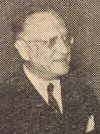
|
Connecticut | May 26, 1941 | November 14, 1944 |
| Patrick J. Hurley | 
|
Oklahoma | January 8, 1945 | September 22, 1945 |
| John Leighton Stuart | 
|
Zhejiang Province | July 19, 1946 | August 2, 1949 |
The Communists took the Nationalist capital of Nanjing in April 1949, but Stuart was not recalled from China until August 1949. The United States did not recognize the new government of the People's Republic of China upon its founding in October 1949. The Consulate in Taipei was upgraded to an embassy in 1953, and therefore the Ambassador to China maintained residence at Taipei, Taiwan, in the Republic of China until relations were severed in 1979. (See: Former American Consulate in Taipei)
| Name | Portrait | Home state | Presented credentials | Terminated |
|---|---|---|---|---|
| Karl L. Rankin | 
|
Maine | April 2, 1953 | December 30, 1957 |
| Everett F. Drumright | 
|
Oklahoma | March 8, 1958 | March 8, 1962 |
| Alan G. Kirk | 
|
New York | July 5, 1962 | January 18, 1963 |
| Jerauld Wright | 
|
District of Columbia | June 29, 1963 | July 25, 1965 |
| Walter P. McConaughy | 
|
Alabama | June 28, 1966 | April 4, 1974 |
| Leonard S. Unger | 
|
Maryland | May 25, 1974 | January 19, 1979 |
For a list of de facto United States ambassadors to Republic of China since 1979, see list of Directors of the American Institute in Taiwan.
List of chiefs of the United States Liaison Office in Beijing
Between May 1973 and March 1979 prior to the official establishment of diplomatic relations, the United States dispatched a head of United States Liaison Office in Beijing.
| Name | Portrait | Home state | Presented credentials | Terminated |
|---|---|---|---|---|
| David K. E. Bruce | 
|
Virginia | May 14, 1973 | September 25, 1974 |
| George H. W. Bush | 
|
Texas | September 26, 1974 | December 7, 1975 |
| Thomas S. Gates Jr. | 
|
Pennsylvania | May 6, 1976 | May 8, 1977 |
| Leonard Woodcock | 
|
Michigan | July 26, 1977 | March 7, 1979[note 4] |
List of ambassadors to the People's Republic of China
The United States established diplomatic relations with the People's Republic of China, and terminated them with the Republic of China, on January 1, 1979. The American Embassy at Taipei closed February 28, 1979, while the American Liaison Office at Beijing was redesignated the American Embassy on March 1, 1979.
| Name | Portrait | Home state | Presented credentials | Terminated |
|---|---|---|---|---|
| Leonard Woodcock | 
|
Michigan | March 7, 1979 | February 13, 1981 |
| Arthur W. Hummel Jr. | 
|
Maryland | September 24, 1981 | September 24, 1985 |
| Winston Lord | 
|
New York | November 19, 1985 | April 23, 1989 |
| James Lilley | 
|
Maryland | May 8, 1989 | May 10, 1991 |
| J. Stapleton Roy | 
|
Pennsylvania | August 20, 1991 | June 17, 1995 |
| James R. Sasser | 
|
Tennessee | February 14, 1996 | July 1, 1999 |
| Joseph Prueher | 
|
Tennessee | December 15, 1999 | May 1, 2001 |
| Clark T. Randt Jr. | 
|
Connecticut | July 28, 2001 | January 20, 2009 |
| Jon Huntsman Jr. | 
|
Utah | August 28, 2009 | April 30, 2011 |
| Gary Locke | 
|
Washington | August 16, 2011 | February 21, 2014 |
| Max Baucus | 
|
Montana | March 20, 2014 | January 16, 2017 |
| Terry E. Branstad | 
|
Iowa | July 12, 2017 | October 4, 2020 |
| R. Nicholas Burns[1] | 
|
Massachusetts | April 1, 2022 | Incumbent |
See also
- Embassy of the United States, Beijing
- China – United States relations
- Foreign relations of China
- Ambassadors of the United States
- Americans in China
Notes
- ^ Diplomatic relations with China interrupted on February 12, 1912 upon the abdication of Puyi.
- ^ Diplomatic relations with China interrupted on February 12, 1912 upon the abdication of Puyi.
- ^ Diplomatic relations with Beijing's Beiyang government terminated and recognition given to Nanjing's National Government on October 1, 1928.
- ^ Upon normalization of diplomatic relations with the People's Republic of China, Leonard Woodcock was promoted from liaison to ambassador in the new embassy.
References
Citations
- ^ "China demands U.S. halt Olympics 'interference'". The Globe and Mail. January 27, 2022. Retrieved January 27, 2022.
Sources
External links
- United States Department of State: Chiefs of Mission for China
- United States Department of State: China
- United States Embassy in Beijing


